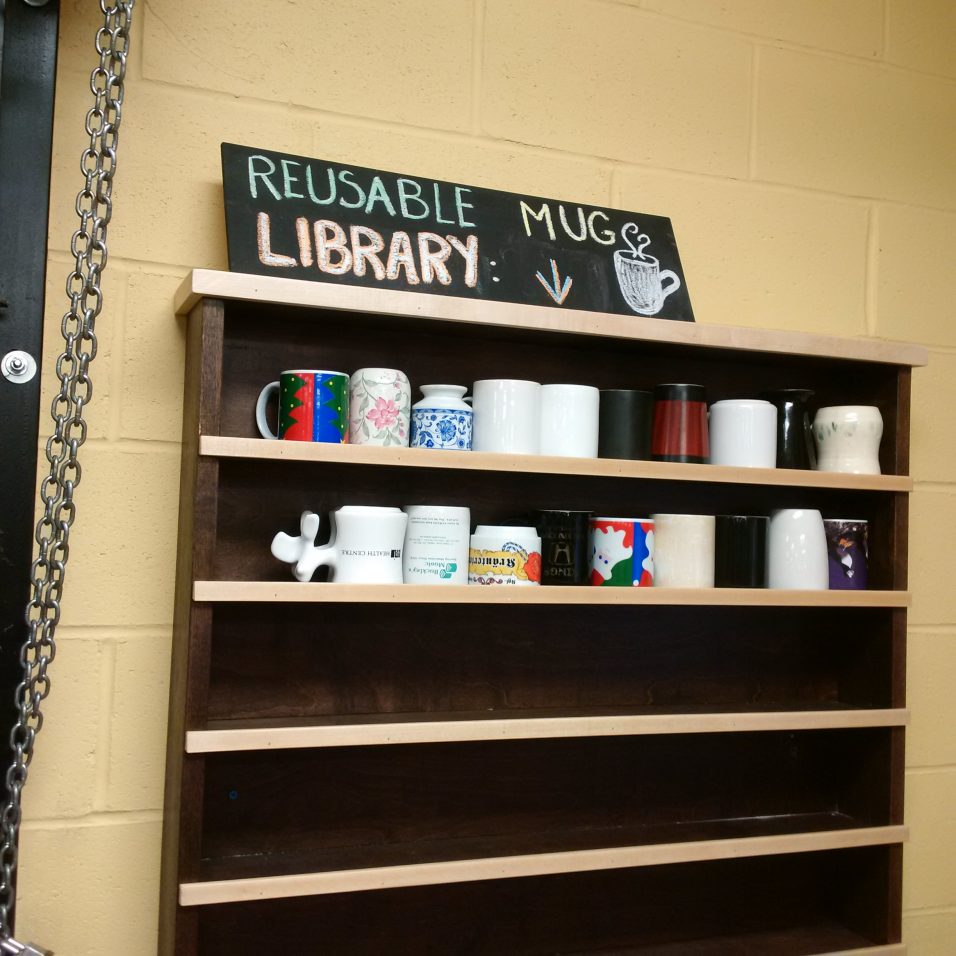Wolfville Farmers Market’s Zero Waste Initiative Results in Huge Waste Reduction
By Ethan Lang
In the first four months of 2019, the Wolfville Farmers’ Market has increased its focus on environmental responsibility, implementing a new Zero Waste Initiative to decrease its weekly output to the landfill. The new initiative, in the words of market manager Kelly Marie Redcliffe, “aims to eliminate as many single-use items as possible, especially ones that aren’t recyclable or compostable.â€
The market had already instituted several ways of accomplishing this goal prior to the Zero Waste program; as early as 2017 they reduced the number of waste receptacles in the building, retaining only one sorting station for garbage, recyclables, and compost. With the new Zero Waste Initiative, they have added new ways to eliminate waste. Reusable cutlery and plates are now available, along with a “leave a bag, take a bag†program that prevents customers from having to use plastic bags if they leave their canvas at home.
The management team also orders compostable takeaway containers in bulk, which vendors can purchase through them so as to save on the costs of small shipping orders, limiting the use of cheaper styrofoam and plastic alternatives. The most prominent source of waste at the market has been disposable coffee cups, which Redcliffe says, “seem to be one of the only ‘to-go’ containers used by our vendors that [don’t] have a reasonable compostable alternative that also [works] with Valley Waste’s capacity.†To combat this, management has created a coffee mug “library.†Inspired by a program at the Truro Farmers’ Market, the library offers customers reusable mugs to borrow for drink orders, then return when finished, either that day or the next week. Some vendors offer a 25 cent discount on drinks when customers use these mugs or bring their own.
Beyond the work of the management team, the Zero Waste Initiative encourages vendors and customers to be proactive and collaborative in limiting waste. Posters hang around the market advertising the ways different vendors contribute. Some offer bottle and jar exchanges, others use paper straws instead of plastic, or offer reusable containers, to name a few examples. Customers are encouraged to bring their own bags, mugs, and utensils to avoid plastic and paper waste. The results have been positive so far. Saturday’s market has decreased their waste output from approximately 22 bags a week to an average of one. The response has been equally positive. “People seem to be quite delighted, even proud of these Zero Waste efforts,†says Redcliffe. “As a community hub, we find that people are
embracing these initiatives as their very own.â€
